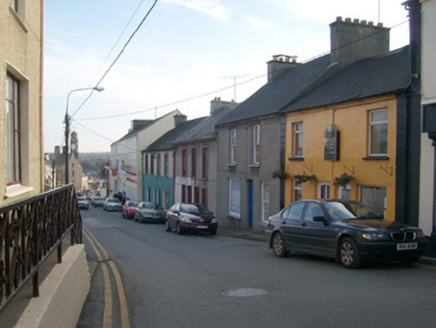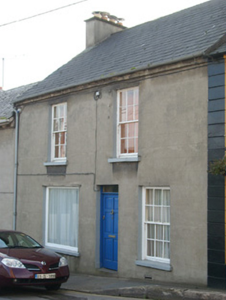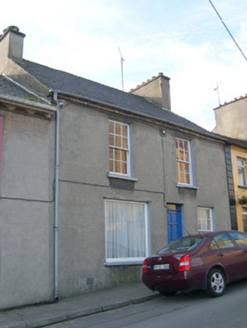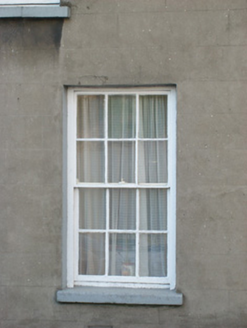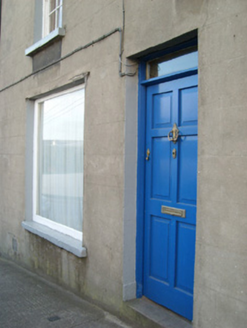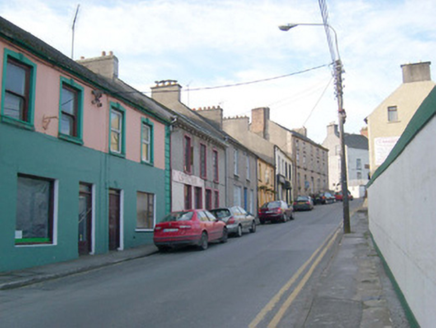Survey Data
Reg No
40852018
Rating
Regional
Categories of Special Interest
Architectural, Social
Original Use
House
Historical Use
Custom house
In Use As
House
Date
1840 - 1880
Coordinates
187622, 361579
Date Recorded
24/10/2007
Date Updated
--/--/--
Description
Attached two-bay three-bay house, built c. 1860. Formerly in use as a customs office/post c. 1900, and later as a retail outlet from c. 1930 to c. 1970. Now in use as a private house. Pitched slate roof with clay ridge tiles, projecting rendered stone eaves course, some remaining sections of cast-iron rainwater goods, and with rendered chimneystacks to either end (north and south). Cement rendered walls with ruled-and-lined finish. Square-headed window openings with rendered masonry sills, smooth rendered reveals and timber six-over-six sliding sash windows. Fixed-pane timber display window to the south end of the front elevation (east). Some replacement windows to rear (west). Square-headed entrance door opening, offset slightly to the north of centre of the east elevation), having replacement timber door. Street-fronted to the centre of Main Street, Ballyshannon.
Appraisal
This modest terraced building, of mid-nineteenth century appearance, retains much of its original character and form despite some alterations. Its form is typical of the buildings that characterised the streetscapes of Irish towns and villages but are now usually heavily altered (the adjoining buildings would be an example of this) or demolished. Its appearance is enhanced by the retention of some of the early windows that help add a satisfying patina of age. This building was apparently in use as a custom office c. 1900, and was – presumably - used as a site were excise duties were paid on goods imported through the port at Ballyshannon. It was later in use as a bakery, and then as a bicycle shop from c. 1920 until c. 1970. It was probably during this time that the fixed-pane display window to the south end of the main elevation was added. This small-scale terraced building makes a positive contribution to the streetscape of Ballyshannon, and represents a modest addition to the built heritage of the town.
